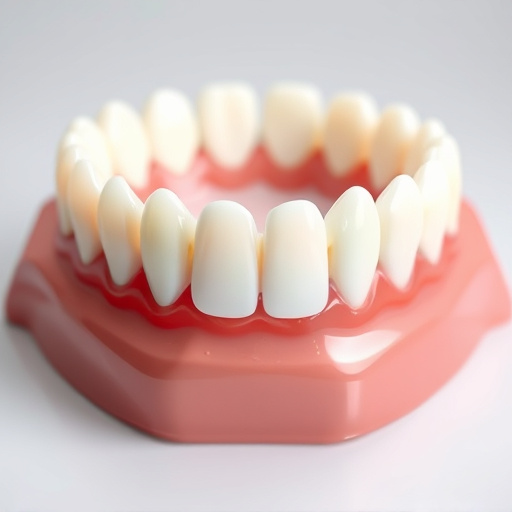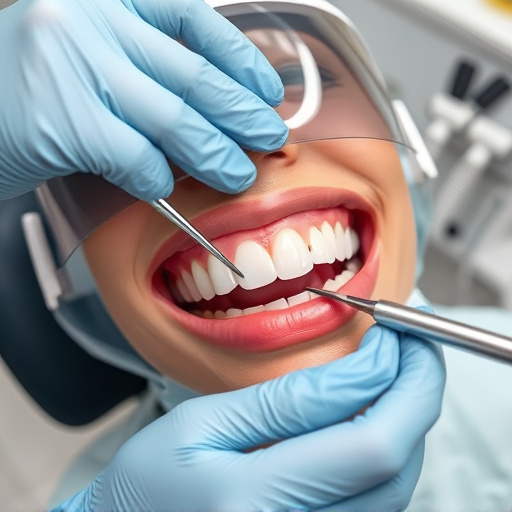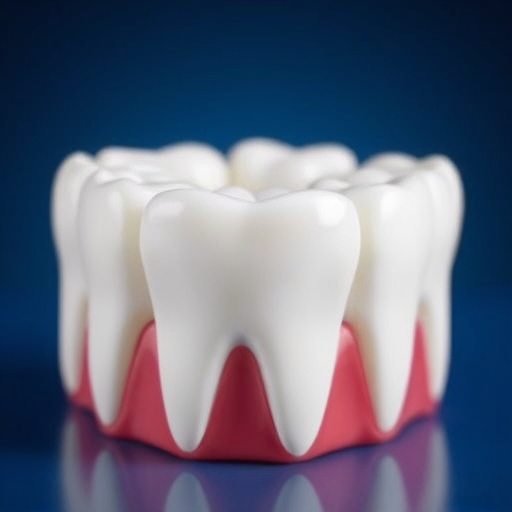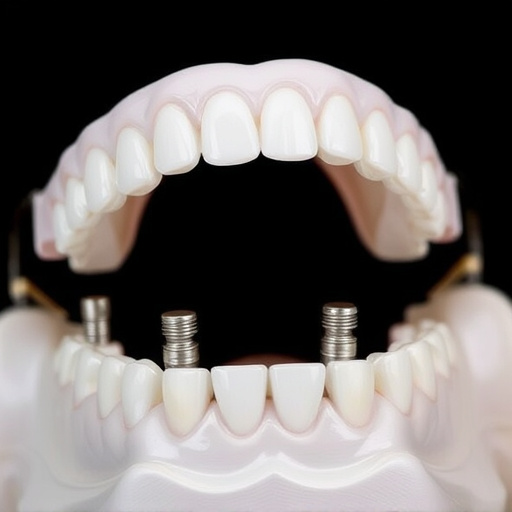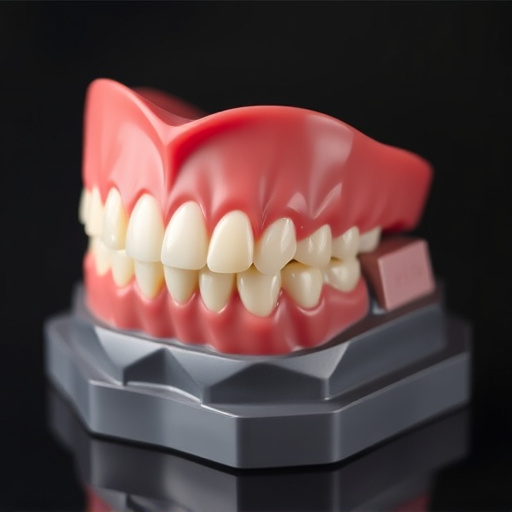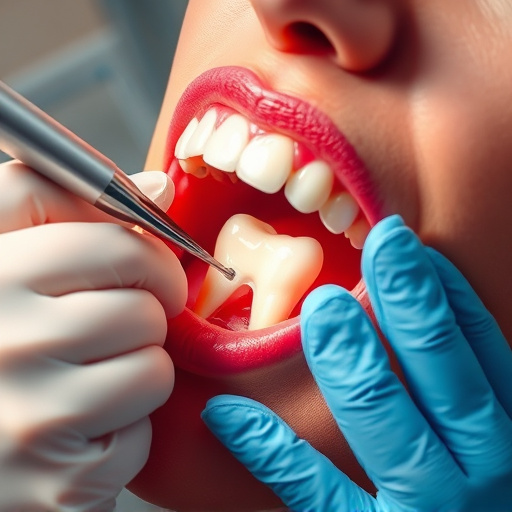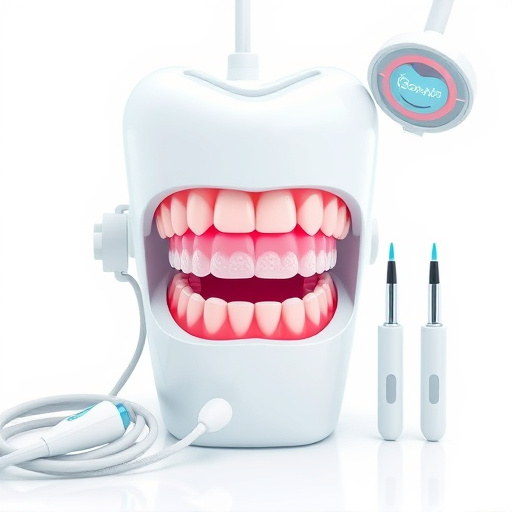Sleep apnea, a common but often overlooked disorder, disrupts sleep with repeated breathing pauses, impacting health and daily life. Untreated, it leads to chronic fatigue and increased risk of conditions like cardiovascular disease and diabetes. Effective sleep apnea treatment options range from lifestyle changes and dental procedures to medical devices and surgery. Early recognition and tailored management, including regular dental check-ups, significantly improve sleep quality, overall health, and well-being.
Sleep apnea is a common yet often overlooked condition that can significantly impact daily life. It disrupts normal sleep patterns, leading to excessive daytime fatigue and increased health risks. This article explores how understanding sleep apnea and its effects on overall well-being is crucial. We delve into various effective treatment options, emphasizing the importance of long-term relief for improved quality of life. By examining successful management strategies, individuals with sleep apnea can reclaim their vitality and enhance their daily experiences.
- Understanding Sleep Apnea and Its Impact on Daily Living
- Exploring Effective Treatment Options for Long-Term Relief
- Enhancing Quality of Life Through Successful Sleep Apnea Management
Understanding Sleep Apnea and Its Impact on Daily Living

Sleep apnea is a common yet often overlooked sleep disorder that significantly impacts an individual’s overall health and daily functioning. It occurs when the upper airway is blocked repeatedly during sleep, leading to pauses in breathing or shallow breaths. These interruptions can occur hundreds of times each night, causing excessive daytime sleepiness, reduced cognitive function, and increased risk of various comorbid conditions such as cardiovascular disease, diabetes, and depression. The impact extends beyond physical health; it affects quality of life, including performance at work or school, social interactions, and overall well-being.
Early recognition and effective sleep apnea treatment are vital to mitigate these effects. Untreated sleep apnea can result in chronic fatigue, irritability, and decreased productivity, making daily tasks more challenging. Fortunately, various treatment options are available, ranging from lifestyle changes like weight loss and positional therapy to specialized medical devices and surgical interventions. Even procedures typically associated with cosmetic dentistry, such as dental cleanings and tooth repair, can play a role in sleep apnea management by addressing underlying oral issues that may contribute to the disorder.
Exploring Effective Treatment Options for Long-Term Relief

Exploring Effective Treatment Options for Long-Term Relief
When it comes to managing sleep apnea, a condition characterized by pauses in breathing during slumber, long-term relief is paramount. The key to achieving this lies in investigating and adopting treatment options that address both the root causes and symptoms of the disorder. One prominent approach involves sleep apnea treatment utilizing clear aligners, an innovative alternative to traditional braces. These custom-fitted devices gently reposition the jaw, fostering a more open airway during sleep.
Additionally, restorative dentistry plays a significant role in sleep apnea treatment. Dental crowns, for instance, can be used to address dental issues like misaligned teeth or jaws that contribute to the condition. By correcting these underlying factors, sleep apnea treatment through restorative means not only enhances overall oral health but also profoundly improves the quality of sleep, leading to a more vibrant and productive daily life.
Enhancing Quality of Life Through Successful Sleep Apnea Management

Successful management of sleep apnea can significantly enhance a person’s overall quality of life. Beyond simply improving sleep patterns, which is a critical component, effective treatment addresses various related health issues. Conditions like high blood pressure, diabetes, and cardiovascular disease are often linked to undiagnosed or untreated sleep apnea. By implementing tailored sleep apnea treatments, individuals can experience reduced symptoms of these co-morbidities, leading to improved overall health and well-being.
A holistic approach to sleep apnea management involves more than just devices or therapies. Regular dental check-ups, including routine oral exams, play a vital role in monitoring the condition’s progression and adjusting treatments accordingly. Family dentistry professionals can offer guidance on lifestyle changes, such as improving sleep environments and adopting healthier habits, further enhancing quality of life for patients managing sleep apnea.
Sleep apnea, left untreated, can significantly impair daily functioning and overall quality of life. However, understanding and accessing effective sleep apnea treatment options offer a pathway to substantial improvement. By exploring tailored solutions for long-term relief, individuals can reclaim their energy, productivity, and well-being. With successful management, the positive impacts extend beyond sleep, enhancing every aspect of daily living.



